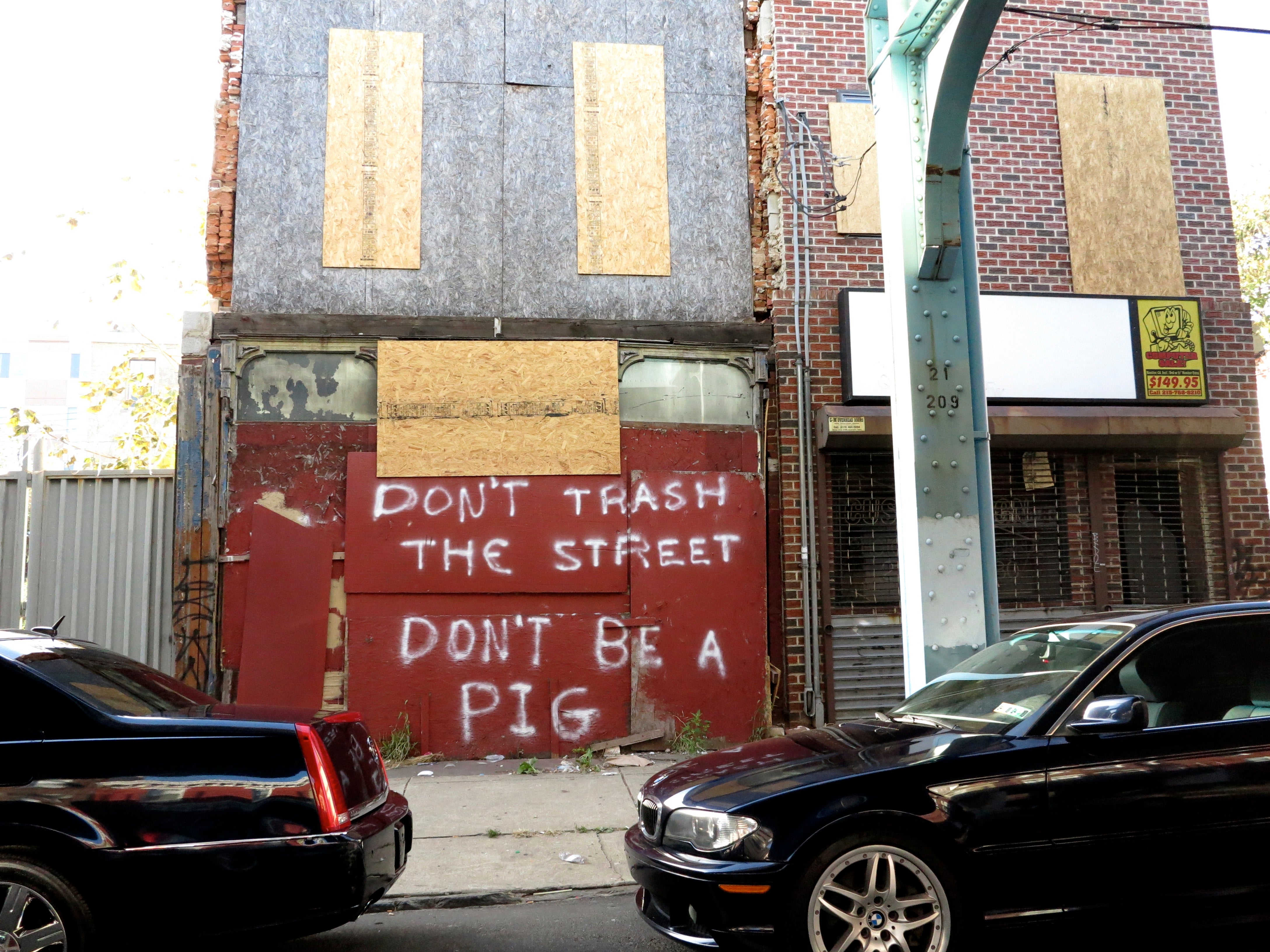Philadelphia aiming to achieve zero waste goal by 2035

Imagining a clean Philadelphia is hard, but Mayor Jim Kenney is trying to tackle that challenge. He wants to reduce the 2.5 million tons of waste that the city generated in 2014 to zero by 2035. To accomplish that goal, Mayor Kenney signed an Executive Order on Tuesday that creates a cabinet of 16 experts from city agencies, the business community, and nonprofit organizations tasked with of developing an action plan in six months.
“I’m assembling a group of experts from within and outside of government to identify more effective ways to increase our waste diversion rate and tackle the long-standing problems of litter and cleanliness that many of our neighborhoods have long struggled with,” said the Mayor in a press release.
Litter negatively affects the quality of life for city residents and makes a poor impression on visitors, argues the mayor. Plus bad management of waste can contaminate soil and water and promote disease transmission.
The Zero Waste and Litter Cabinet, co-chaired by Managing Director Michael DiBerardinis and Deputy Managing Director for Transportation and Infrastructure, will need to create a “data-driven, comprehensive, and coordinated action plan” that identifies effective ways of reducing the amount of waste that ends in landfills and incinerators, and in public spaces across the city.
As part of the new Greenworks plan, the City is already taking on cross-departmental initiatives like litter coordination and the litter index, a street-by-street assessment action to reduce waste. Different city agencies are also working separately on efforts to reduce waste through recycling, composting, sustainable procurement, and education.
According to Nic Esposito, Zero Waste and Litter director, the key of the cabinet will be convening and connecting agencies so everyone knows what is being done and which are the most effective ways of reducing waste and keeping the streets clean.
“From 2007 to this year, the amount of waste generated by the city decreased by 15 percent,” Esposito told PlanPhilly. “I think people are starting to get it and understanding this issue.”
One of the big barriers, according to Esposito, is education. The action plan should expand existing outreach campaigns, teaching businesses and residents how to recycle properly and how to make less waste, and lead to new partnerships with public and private organizations.
“I was on a recycling truck this morning and many of the bins had at least one thing that was not supposed to be there,” Esposito said. “We also have to work with the industry to use materials and packaging that is more recyclable.”
Esposito added that the city is working to create the infrastructure that will allow a better waste and litter management, from trash cans to organic collection and compost facilities, and the enforcement to punish bad behavior. But what’s more important is to engage the community through proactive initiatives that make people more mindful of the waste they create, like the waste watchers initiative. According to Greenworks, each week the average Philadelphian produces nearly 15 pounds of trash.
“I’m convinced that a comprehensive, interdepartmental approach that tackles all aspects of the issues – and coordinates the responses across departments, in cooperation with City Council and community members– is the only way to achieve the aspirational goals of a zero waste, litter free City – and this cabinet can help accomplish those objectives,” said Managing Director Michael DiBerardinis in Tuesday’s press release.
In his executive order Mayor Kenney said Philadelphia “should strive to become the cleanest city in America” and by joining the zero waste goals, the city is going the way of other major cities like New York, and Los Angeles, whose Solid Waste Integrated Resources Plan goal is 90 percent diversion by 2025, and states like Texas, which has committed to reducing the amount of trash sent to landfills by 90% by 2040.
The cabinet members will meet every month and will need to implement measurable standards to demonstrate progress and prepare and publish annual reports.
Current Zero Waste and Litter Cabinet:
- Karen Fegely, Deputy Commerce Director
- Marty Gregorski, Department of Planning and Development, Zoning Specialist
- Will Carter, Chief of Staff to Council President
- Fran Burns, Director of Operations, Philadelphia School District
- Katherine Martin, Chief of Staff, Chief Integrity Officer
- Erik Johansen, SEPTA
- Rebecca Collins, SEPTA
- Lorraine Ryan, PennDOT Maintenance Services Manager
- Rodney Stith, PennDOT County Manager, Philadelphia County
- Chuck Raudenbusch, Waste Management
- Dave Deets, Brown’s Super Stores, Director of Store Development and Sustainability
- Michelle Feldman, Keep Philadelphia Beautiful, Executive Director
- Angela Val, Visit Philly
- Lauren Vidas, Citizen
- Alex Balloon, Tacony CDC
WHYY is your source for fact-based, in-depth journalism and information. As a nonprofit organization, we rely on financial support from readers like you. Please give today.




